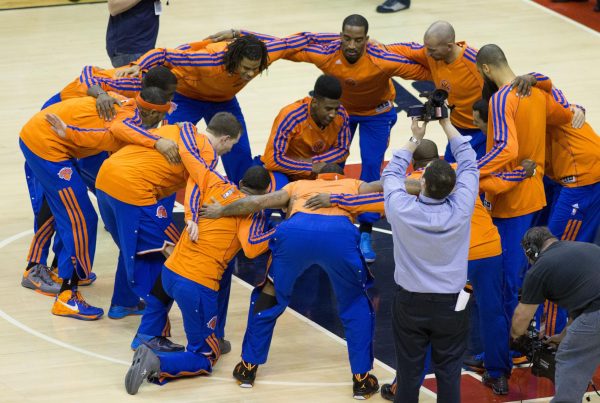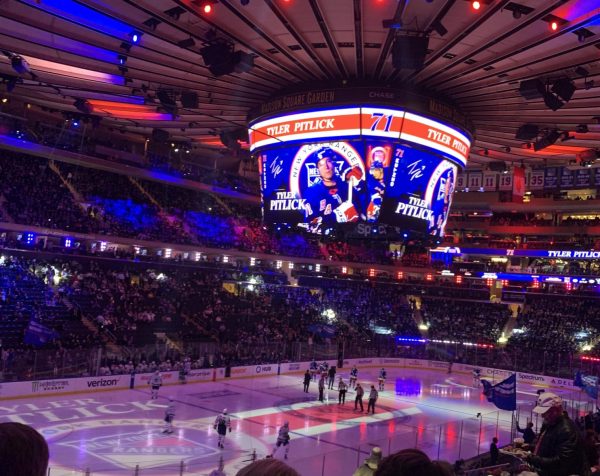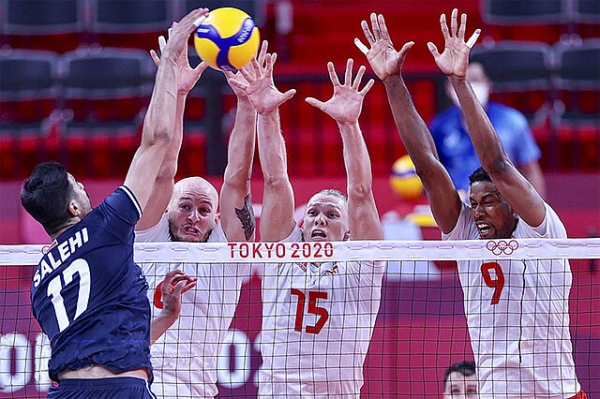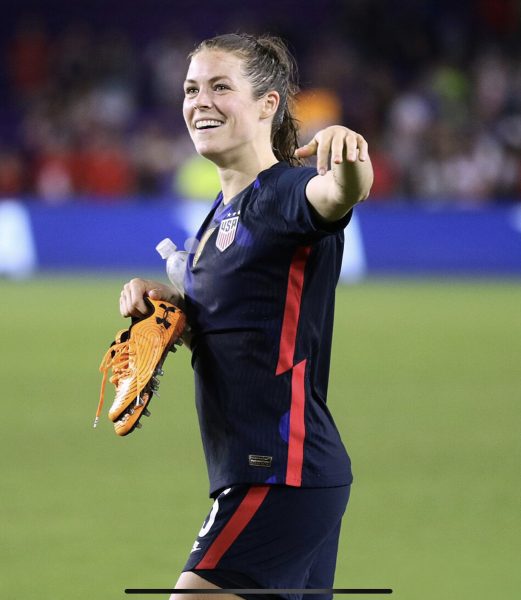Is the Essence of International Soccer Being Corrupted by Money?
With many new developments occurring throughout the top 5 European soccer leagues, many fans are growing troubled by the greed of their own clubs.
Fans gather to protest the European soccer league.
On April 19th, 2021, the announcement of the formation of the ‘European Super League’ threw fanatic and casual soccer fans alike into turmoil. An idea that had been tossed around for quite some time up until the big announcement, this new league intended to draw larger crowds and bring more revenue to the wealthiest international soccer teams by having the 15-20 most prominent teams in the world compete within an exclusive league.
For the average American sports fan unfamiliar with international soccer, the super league does not seem like such a radical proposition. “I don’t see the problem with making a league where all the best teams can play each other. It seems like a cool idea,” said Adam Kamenetz ’23. What sports fans unfamiliar with international soccer may fail to understand, however, is that the structure of European soccer is very different to the leagues that they usually watch.
A key difference is that American sports leagues like the NFL and NBA are undoubtedly the best leagues in the world for their respective sport. Though there are basketball leagues in other countries, the skill level comes nowhere close to that of the NBA.
In Europe, it is entirely different. There are considered to be five top soccer leagues: The Premier League in England, La Liga in Spain, Serie A in Italy, Ligue 1 in France, and the Bundesliga in Germany, all of which hold a share in some of the best teams and talent in the world. These leagues all have a set list of teams, who play each other during the season.
Unlike American sports, there are no “playoffs” at the end of the season. Instead, the team that has the best record is immediately crowned as champion. The three teams that have the worst record are sent down to a lower tier of soccer.
Most countries in Europe have multiple “tiers” of soccer, a bit similar to the G league in the NBA, except each team is independent. When a team finishes top three in its tier, they get promoted to the next highest league — a cause for celebration among small teams and their fans.
Usually, teams from different leagues do not play each other, but there are some annual showcases where inter-league play occurs. The UEFA Champions League is the biggest annual soccer competition in the world.
All of the top performing teams from every league in Europe participate in the Champions League, which is set up in a large tournament structure similar to the NCAA tournament. Though usually dominated by the bigger teams, there have been some Cinderella stories in the past, with teams like Porto and Ajax breaking through in recent years.
The motive for the European Super League’s establishment is simple — money. A billion dollar project backed by JP Morgan, the Super League would unite all of Europe’s richest clubs into one “super league.” Teams with huge global followings around the world like Barcelona, Manchester United, and Juventus would all compete, drawing their huge crowds and television ratings. While this may seem like a brilliant way for billionaire team owners to add to their net worth, it is immensely unpopular with almost every fan of European soccer.
The issue with the idea is that by taking all the biggest clubs out of their leagues and forming one exclusive, rich league with no mobility, the old leagues would fall into ruin.
Watching soccer would become extremely dull for fans of smaller clubs, who would remain in the old leagues with much less competition and excitement. Under the current format, smaller clubs are often just as competitive, if not more so, than larger clubs with more money, yet they would have no opportunity to rise up and compete amongst the best in the world.
Immediately after the announcement of the ‘European Super League,’ fans around the world were in a state of outrage, anger, and unrest. Many fans organized outside of stadiums in demonstrations to protest the creation of the league, and some called for the resignation of their owners. While the protests were sparked in response to the announcement, this is not the first time fans have been unhappy with team owners. Supporters of the top teams in the English Premier League have voiced displeasure in the past with the greed displayed by wealthy owners. In the past 20 years, teams such as Arsenal, Manchester United, and Liverpool have all been bought by American owners, who have all come under scrutiny for allegedly prioritizing money over the success of the team.
“American owners, such as Stan Kroenke, who do not understand soccer, are only in it for the money,” Ben Golden ’22 said. Many supporters of Arsenal, the club that Kroenke owns, would agree with Golden’s comment. It is sad for them to see money and greed corrupt their favorite sport.
To the joy of many global fans, an announcement was made that the ‘European Super League’ would be suspended for the time being, in response to all of the backlash that its formation had received in the media. However, there is no doubt that the actions of club owners have tarnished the reputation of many globally supported teams.
“American owners, such as Stan Kroenke, who do not understand soccer, are only in it for the money,” Ben Golden ’22 said.
Ben Raab is a Managing Editor/Advisory Editor for 'The Science Survey.' He finds the most appealing aspect of journalistic writing to be its creative...











